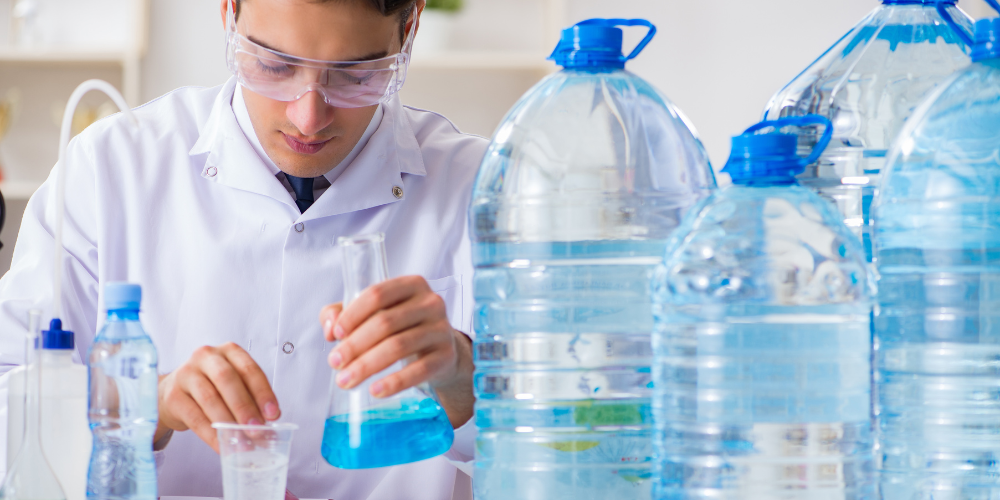
The Significance of Water Testing for Your Health in Chennai
Water is essential for life, yet in a rapidly urbanizing city like Chennai, ensuring the safety of drinking water is increasingly challenging. From industrial waste to outdated pipelines, multiple factors contribute to water contamination. Regular water testing in Chennai is critical to protect your health, identify hidden contaminants, and take necessary corrective measures.
This blog explores the importance of water testing, common contaminants found in Chennai’s water supply, the health risks they pose, testing methods, and how residents can ensure safe water consumption.
Why is Water Testing in Chennai Important?
1. Growing Water Contamination Issues
Chennai faces serious water quality challenges due to:
- Industrial discharge contaminating groundwater
- Sewage leakage due to poorly maintained pipelines
- High TDS (Total Dissolved Solids) in borewell water
- Presence of heavy metals like lead, arsenic, and fluoride
These contaminants often go undetected without proper testing, leading to long-term health consequences.
2. Health Risks of Contaminated Water
Unsafe water can result in:
- ✅ Short-term effects: Diarrhea, stomach infections, nausea
- ✅ Long-term effects: Kidney damage, neurological disorders, even cancer
- ✅ High-risk groups: Infants, pregnant women, elderly
Regular water quality checks can help identify problems early and ensure safer consumption.
Common Water Contaminants in Chennai
A. Biological Contaminants
- Bacteria: E. coli, Coliform — cause gastrointestinal infections
- Viruses & Parasites: Linked to cholera, hepatitis, and other diseases
B. Chemical Contaminants
- Heavy Metals: Lead, arsenic, mercury — affect brain and organ health
- Fluoride & Nitrates: Excess levels impact bones, thyroid
- Pesticides & Chemicals: Can disrupt hormones and increase cancer risks
C. Physical Contaminants
- Sediment & Rust: From old pipes, affects taste and clarity
- High TDS Levels: Makes water hard, leading to kidney issues
How Water Testing Works in Chennai
Types of Tests Available
- Basic Potability Test: pH, turbidity, chlorine, bacteria
- Comprehensive Chemical Test: Detects metals, nitrates, and pesticides
- TDS & Hardness Test: Measures salt content and hardness
- Specialized Tests: Checks for fluoride, lead, and other regional risks
Where to Get Your Water Tested?
- 🔬 Government Labs: Chennai Metro Water Supply & Sewerage Board
- 🏢 Private Labs: Equipped with advanced testing tools
- 🧪 Home Testing Kits: Useful for basic checks
Signs Your Water Needs Immediate Testing
- 🚩 Unusual taste or odor (chlorine, metallic, rotten eggs)
- 🚩 Discolored or cloudy appearance
- 🚩 Frequent stomach or skin infections in the family
- 🚩 White scale buildup in appliances (hard water)
Recommended Testing Frequency
| Water Source | Testing Frequency |
|---|---|
| Municipal Supply | Once a year |
| Borewell Water | Every 6 months |
| Households with infants/pregnant women | Every 3 months |
| After floods/pipeline damage | Immediately |
Steps to Ensure Safe Drinking Water in Chennai
- ✔ Regular Testing: Detect hidden contaminants early
- ✔ Install Water Purifiers: Use RO/UV systems to remove impurities
- ✔ Maintain Plumbing: Clean tanks, repair leaks
- ✔ Use Certified Sources: Prefer branded packaged water if unsure
- ✔ Stay Informed: Follow water quality alerts by authorities
Don’t Take Chances with Your Water!
Chennai’s water quality issues demand proactive attention. Contaminated water can severely affect your health, especially for children and vulnerable individuals. Regular water testing in Chennai helps identify risks and take corrective actions before it’s too late.
✅ Get your water tested at a certified lab today.
✅ Use proper water purification methods for long-term safety.
✅ Share this information with your community to raise awareness.

